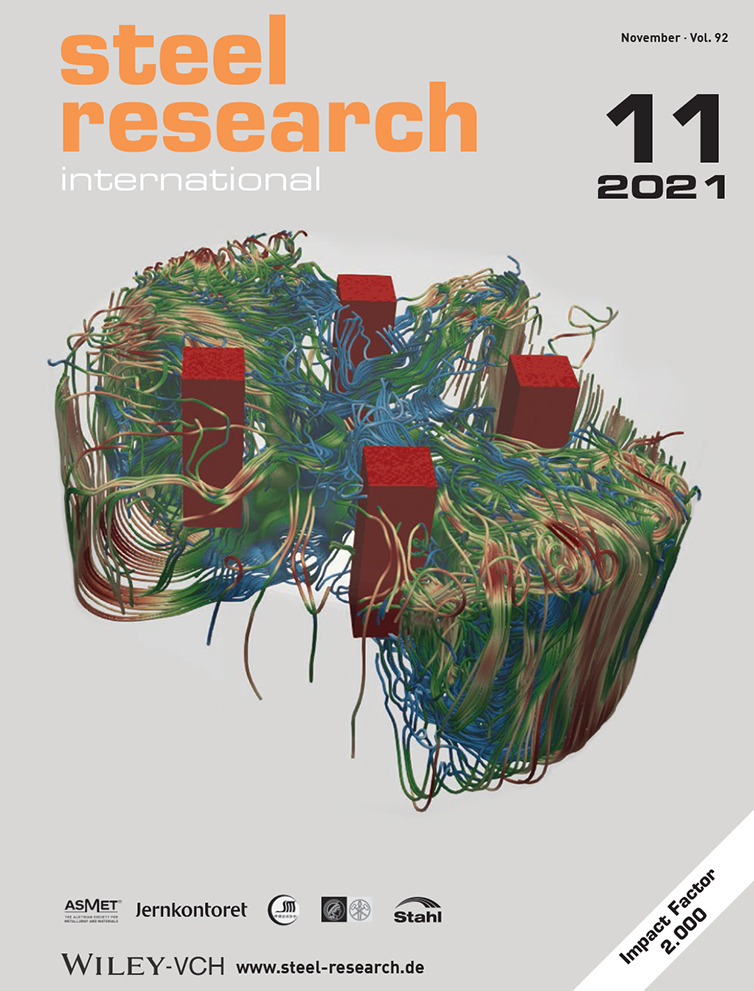Effects of Yttrium on the Microstructure and Properties of 20MnSi Steel
Abstract
20MnSi steel samples with different rare-earth yttrium (Y) contents are prepared in the laboratory. Microstructure analysis is performed using the methods of microscopy and electron probe microanalysis, and the mechanical and physical properties are assessed using the tensile tester and thermal dilatometer. The results show that with increasing Y content, the thickness of the martensite layer on the surface of 20MnSi steel decreases gradually until it almost disappears, which is attributed to Y reducing martensitic transformation temperature. Y refines the size of the pearlitic lamellae, which improves the yield strength. Y-containing composite inclusions (Y2O2S) of microsized spheres are easily formed in the steel, which assists the nucleation of ferrite, thereby resulting in an increase in the yield point elongation. In addition, the content of inclusions increases, thereby resulting in a decrease in uniform elongation.
Conflict of Interest
The authors declare no conflict of interest.
Open Research
Research data are not shared.




